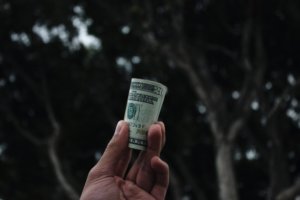Ex-Deutsche Bank traders seek to exclude evidence about how much money they made
James Vorley and Cedric Chanu argue that the Government should be precluded from telling the jury how much money they made while at Deutsche Bank.

Former Deutsche Bank precious metals traders James Vorley and Cedric Chanu, who stand accused of spoofing in a criminal action at the Illinois Northern District Court, are trying to persuade the Court that evidence regarding their compensation at Deutsche Bank should be excluded from trial. Their arguments were outlined in a document filed with the Court on August 25, 2020.
The defendants say that the government does not advance a plausible reason for telling the jury how much money the defendants made at Deutsche Bank. To the contrary, according to Vorley and Chanu, any points the government wishes to make at trial can be made without introducing the actual dollar value of the defendants’ compensation.
First, the government suggests that defendants’ total compensation “establishes the defendants’ motive and intent to participate in a market manipulation scheme” because “this level of compensation . . . provided strong incentives for defendants to keep their jobs.” Courts have rejected the inference that a well-paid person is more likely than a poorer one to participate in a crime, the defendants explain. And even if the Court allowed the government to make such a suggestion, the government could do so without introducing into evidence the defendants’ total pay, the former traders argue.
The government tries to connect the defendants’ alleged motive to commit fraud (“keeping their jobs”) with their total compensation. But, according to Vorley and Chanu, there is no indication that profits from individual trades had any material impact on their job security, let alone that they risked losing their jobs if they did not engage in fraud. Such an argument would defy common sense, they say.
Next, the government contends that evidence of the defendants’ total compensation “tends to defeat the anticipated defense that traders’ bonuses were unrelated to profitability” because “a bank would not pay an employee huge amounts of money to do things that did not directly help the bottom line.” According to the defendants, this argument is premature because they have not indicated that they will argue that the traders’ bonuses were wholly unrelated to profitability. And in any event, this argument wrongly assumes that evidence of all trading profits is relevant as long as such profits factor into the bonus calculus.
To the extent profitability factored into the defendants’ bonuses, the profits to Deutsche Bank from any given trade (or even all the trades the government intends to offer in summary fashion) would be miniscule compared to the annual profits generated for Deutsche Bank by the defendants, and the impact of any given profit on the defendants’ bonuses would be impossible to measure, the defense argues.
Further, the defendants say the government should be precluded from arguing or presenting evidence purporting to link the defendants’ profits from trades to their bonuses. As the government concedes, “the traders on Deutsche Bank’s precious metals desk did not receive a fixed percentage of their profits,” but rather “their bonuses were determined by several factors.” Given that profits from individual trades somehow factored into the bonus calculus, the impact of any given profit on the defendants’ bonuses would be diluted and impossible to calculate, the defendants say.
Finally, Vorley and Chanu argue that, even with a limiting instruction, compensation evidence would undoubtedly play into a bias against people of wealth, and trigger unwanted negative associations on the part of certain jurors that would infect their view of the evidence.









